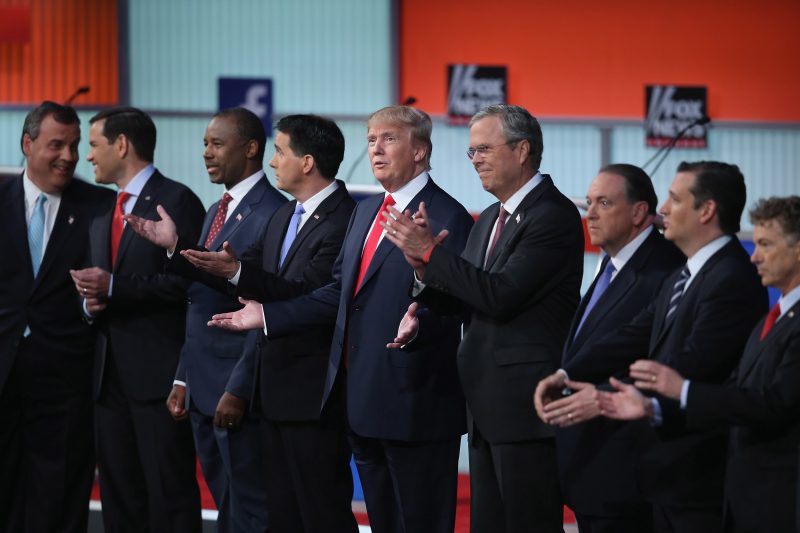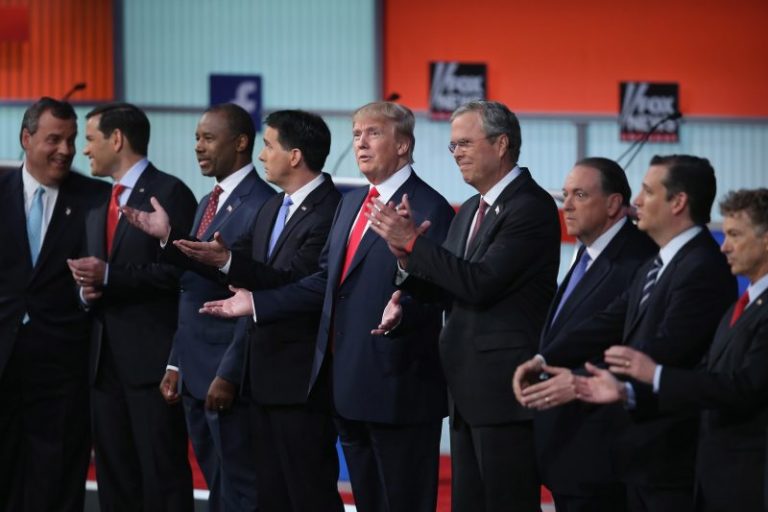
Chris Christie’s entry into the 2024 GOP presidential race Tuesday has provided what many Never Trumpers have long pined for: A Republican making a full-throated and unapologetic case against Trump using all of the available tools.
And as Christie has set about embracing that role, more than a few — including us and Christie himself — have recalled the time he supposedly slayed another presidential candidate, by the name of Marco Rubio.
Rubio, perhaps needless to say, takes issue with this version of history.
“Any political reporter/commentator claiming Christie ‘ended’ my campaign in 2016 is lazy or dumb,” Rubio tweeted Tuesday night, after Christie’s campaign launch.
Any political reporter/commentator claiming Christie “ended” my campaign in 2016 is lazy or dumb
NH debate sucked because instead of hitting back when attacked like I wanted to, I listened to advice about “pivoting” & not “punching down” on a CC who was at 7% & about to drop…
— Marco Rubio (@marcorubio) June 6, 2023
So what’s the truth? This would seem to be mere historical trivia, but it’s relevant given Christie’s assumed status as the would-be Trump slayer.
For those who need a refresher, in the Republican presidential debate in New Hampshire in February 2016, Rubio repeated a talking point about Barack Obama he had uttered just moments earlier — “Let’s dispel with this fiction that Barack Obama doesn’t know what he’s doing; he knows exactly what he’s doing” — and Christie called him out for his “memorized 30-second speech.” Then, in response, Rubio returned to his Obama talking point, and Christie called him out again. It suggested a robotic candidate who couldn’t think on his feet, which Christie was only so happy to drive home.
As with any such narrative about what did or didn’t make a candidate win or lose, it’s easy to oversimplify this. Too often, everything a winner did is deemed to have worked, and everything a loser did is cast as a colossal failure and miscalculation. Just because someone lost after X happened doesn’t mean X was the cause.
That said, this one clearly hurt.
Rubio’s case basically amounts to the idea that he still had a pulse after Christie supposedly ended him.
“After NH I finished 2nd in SC & NV, won 3 primaries, almost won Virginia on Super Tuesday, finished with the 3rd most delegates behind Trumps historic campaign & was reelected twice by 8 & 17 points,” Rubio added in the tweet.
Fair enough. We can talk about what “ended my campaign” means. But the moment certainly played a significant role in ending whatever shot Rubio might have had at the nomination.
The debate was held Feb. 6. That date, as it happens, was Rubio’s peak in New Hampshire polling. He was at 16.4 percent in the FiveThirtyEight average, 14 points behind Trump. And he was coming off being competitive with both Trump and Sen. Ted Cruz (Tex.) in Iowa, meaning a good finish in New Hampshire could have been his ticket to ride.
But on primary day Feb. 9, Rubio finished fifth, 24 points behind Trump.
And at the time, even Rubio cited the debate.
“Our disappointment tonight is not on you; it’s on me,” he said that night. “I did not do well on Saturday night, so listen to this: That will never happen again.”
Also important was what was happening nationally. Rubio was the most ascendant candidate after Iowa, rising from 10 percent in early February to about 20 percent, according to the RealClearPolitics average. And if you look at the chart in that link around that time, you’ll see something significant: His gains were coming at Trump’s expense.
Rubio’s national polling didn’t drop off a cliff after New Hampshire, but his momentum was clearly halted at a time when he could have asserted himself as the Trump alternative.
Rubio is correct that he went on to finish second in both of the next two states, South Carolina and Nevada. But those were double-digit wins for Trump, cementing his status as the strong favorite. And without any early-state wins, Super Tuesday wound up being a disappointment for Rubio.
He did ultimately win three contests, but all were much lower-profile races: nonbinding precinct caucuses in Minnesota, the Puerto Rico primary and a convention in the District of Columbia. That’s pretty thin gruel for a guy who in 2013 was christened the “Republican Savior” by Time magazine. The story of his campaign was unfulfilled potential, and it really came apart in the New Hampshire primary.
Last is something else Rubio said in his tweet.
“NH debate sucked because instead of hitting back when attacked like I wanted to, I listened to advice about ‘pivoting’ & not ‘punching down’ on a CC who was at 7% & about to drop out,” Rubio said.
Except as Benjy Sarlin notes, Christie’s big attack on Rubio came after Rubio punched back at Christie pretty hard.
“Under Chris Christie’s governorship of New Jersey, they’ve been downgraded nine times in their credit rating,” Rubio said when asked to respond to respond to Christie saying he didn’t have the experience to be president.
Moments later, Rubio did pivot. For the second time he offered the “dispel with the fiction” line about Obama. Then he did it again. And the rest is history — history that Rubio has now been forced to relive.


Comments are closed.